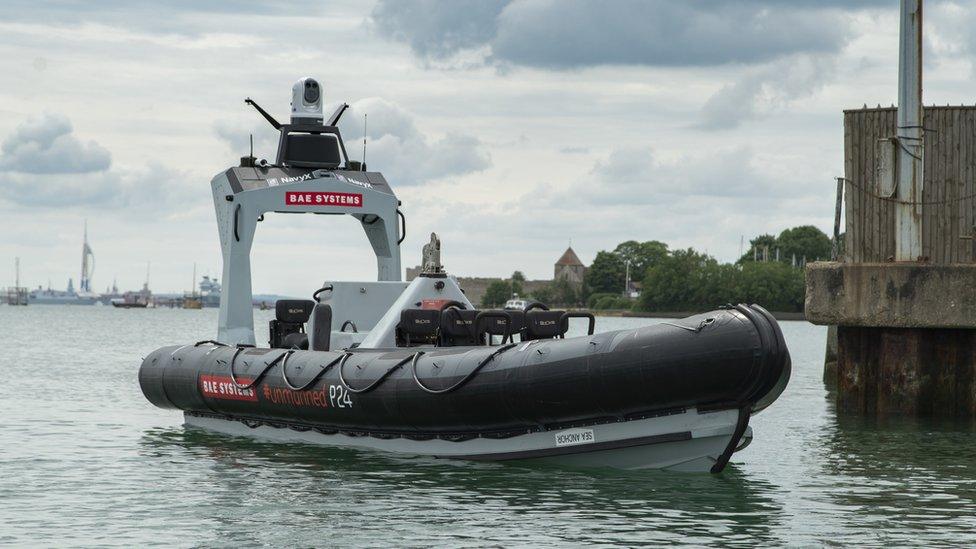Royal Navy's first crewless boat ready for testing
- Published

A crewless "drone" version of a boat that could help operations including search-and-rescue and drug raids has been launched by the Royal Navy.
More than £3m is being invested in the crewless Pacific 24 boat and other self-operated craft.
Boats could be sent on individual missions or in groups, reaching speeds of up to 38 knots (nearly 44mph).
The Pacific 24 has been used in sea boat operations from Royal Navy warships for more than 25 years.
It is fundamental to a wide range of operations including life-saving, search operations, and the more mundane task of ferrying personnel and stores between ships or from ship to shore.
However the new "drone" version of the Pacific 24 could provide a more streamlined way of carrying out these operations - and even open up some new types of missions.
The boats will be controlled from a parent ship, such as a frigate or destroyer.
Defence Minister Jeremy Quin said: "Commencing the trials of the crewless Pacific 24 boat is an important stepping stone in the Royal Navy's development of its autonomous capability to ensure our fleet remains at the forefront of military innovation and technology, ready to meet the evolving threats of modern warfare."
Potential tested
The crewless Pacific 24 is sponsored by NavyX, the specialist wing of the Royal Navy which trials cutting-edge technology for use on the front line.
The team has worked in partnership with BAE Systems, which builds the Pacific 24 in Portsmouth.
Its potential will be tested when it begins trials with a Royal Navy warship later this year. This will determine whether the UK invests in a whole fleet, or just a few for specific missions.
Lt Cdr Rob Manson, of the NavyX team, said the autonomous Pacific 24 "ensures the Navy remains at the forefront of technological improvement and innovation".